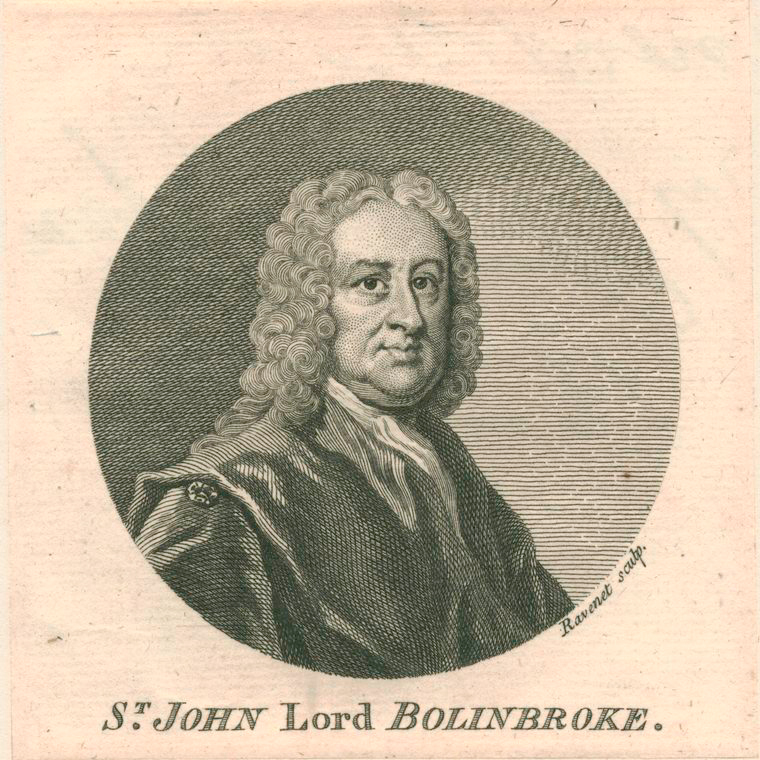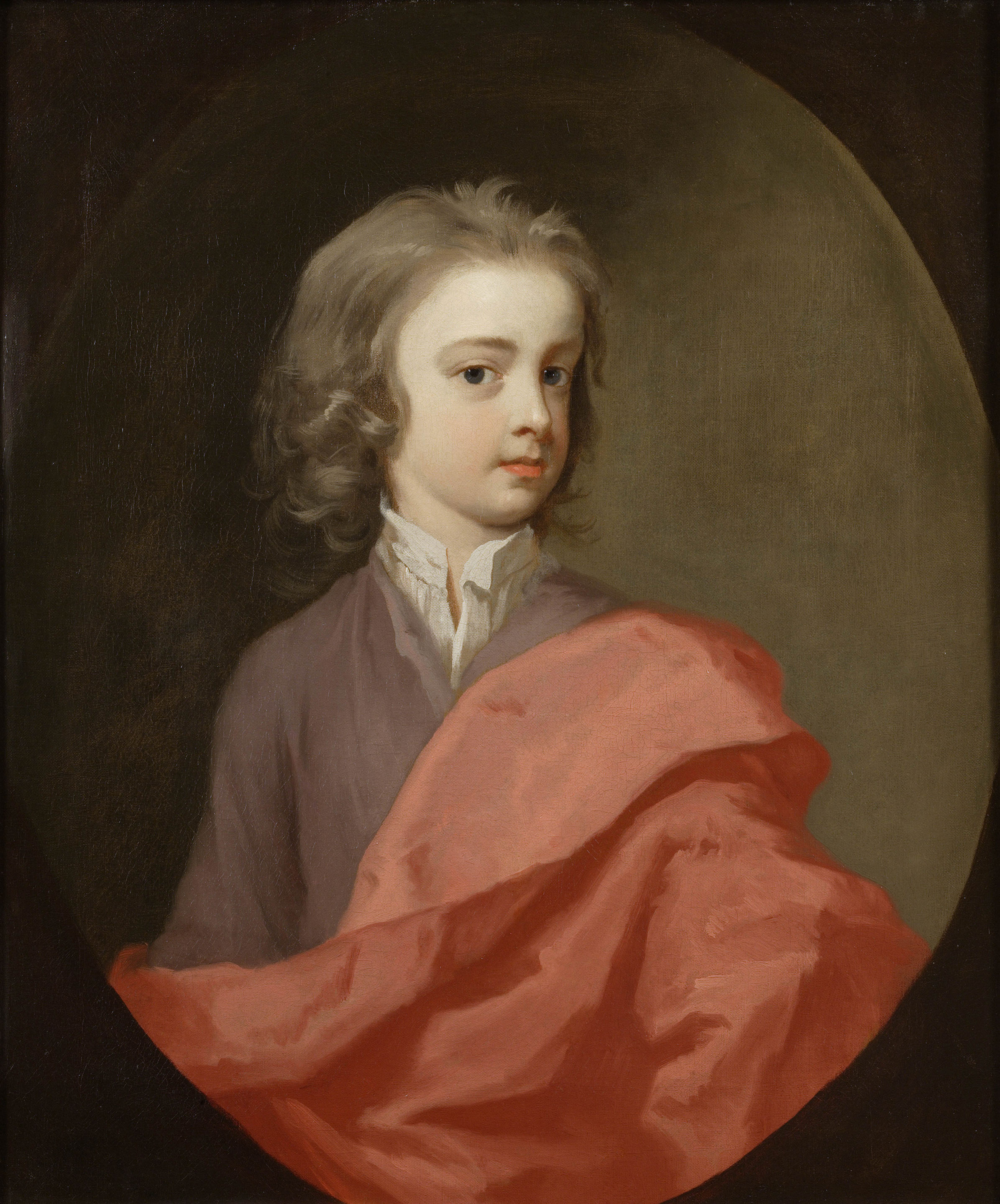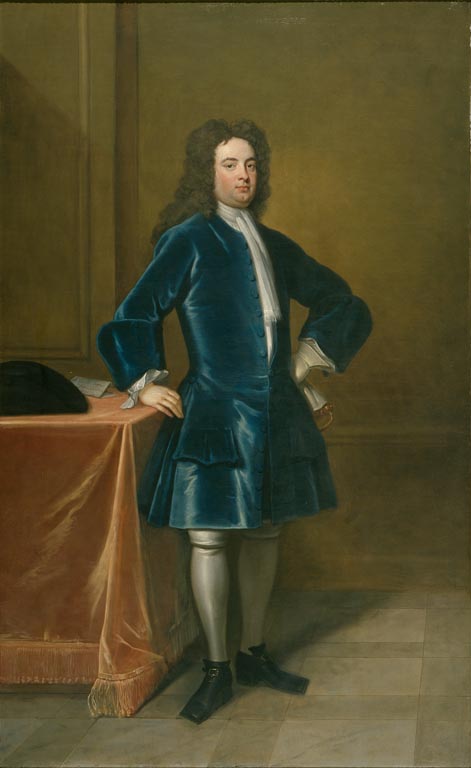 |
Secretary At War
The Secretary at War was a political position in the English and later British government, with some responsibility over the administration and organization of the Army, but not over military policy. The Secretary at War ran the War Office. After 1794 it was occasionally a Cabinet-level position, although it was considered of subordinate rank to the Secretaries of State. The position was combined with that of Secretary of State for War in 1854 and abolished in 1863. Notable holders of the position include Robert Walpole, the Hon. Henry Pelham, Henry Fox, Lord Palmerston Henry John Temple, 3rd Viscount Palmerston, (20 October 1784 – 18 October 1865) was a British statesman who was twice Prime Minister of the United Kingdom in the mid-19th century. Palmerston dominated British foreign policy during the period ... and Lord Macaulay. Secretaries at War, 1661–1854 Secretaries of State for War and Secretaries at War, 1854–1863 References {{Reflist War Defun ... [...More Info...] [...Related Items...] OR: [Wikipedia] [Google] [Baidu] |
|
Henry Pelham, Parliamentary Art Collection
Henry may refer to: People * Henry (given name) *Henry (surname) * Henry Lau, Canadian singer and musician who performs under the mononym Henry Royalty * Portuguese royalty ** King-Cardinal Henry, King of Portugal ** Henry, Count of Portugal, Henry of Burgundy, Count of Portugal (father of Portugal's first king) ** Prince Henry the Navigator, Infante of Portugal ** Infante Henrique, Duke of Coimbra (born 1949), the sixth in line to Portuguese throne * King of Germany **Henry the Fowler (876–936), first king of Germany * King of Scots (in name, at least) ** Henry Stuart, Lord Darnley (1545/6–1567), consort of Mary, queen of Scots ** Henry Benedict Stuart, the 'Cardinal Duke of York', brother of Bonnie Prince Charlie, who was hailed by Jacobites as Henry IX * Four kings of Castile: **Henry I of Castile **Henry II of Castile **Henry III of Castile **Henry IV of Castile * Five kings of France, spelt ''Henri'' in Modern French since the Renaissance to italianize the name and t ... [...More Info...] [...Related Items...] OR: [Wikipedia] [Google] [Baidu] |
|
 |
Henry St John, 1st Viscount Bolingbroke
Henry St John, 1st Viscount Bolingbroke (; 16 September 1678 – 12 December 1751) was an English politician, government official and political philosopher. He was a leader of the Tories, and supported the Church of England politically despite his antireligious views and opposition to theology.See e.g., Henry St. John Viscount Bolingbroke, "Letters or Essays Addressed to Alexander Pope: Introduction"''The Works of Lord Bolingbroke: With a Life, Prepared Expressly for This Edition, Containing Additional Information Relative to His Personal and Public Character,'' (Philadelphia: Carey and Hart, 1841) Vol 3, pp. 40–64. Also available on Project Gutenberg as "Letter to Alexander Pope" i ''Letters to Sir William Windham and Mr. Pope''D'Holbach, Baronparagraph 206 He supported the Jacobite rebellion of 1715 which sought to overthrow the new king George I. Escaping to France he became foreign minister for the Pretender. He was attainted for treason, but reversed course and w ... [...More Info...] [...Related Items...] OR: [Wikipedia] [Google] [Baidu] |
|
William Barrington, 2nd Viscount Barrington
William Wildman Shute Barrington, 2nd Viscount Barrington, PC (15 January 1717 – 1 February 1793), was a British politician who sat in the House of Commons for 38 years from 1740 to 1778. He was best known for his two periods as Secretary at War during Britain's involvement in the Seven Years War and American War of Independence. Background Barrington was the eldest son of John Barrington, 1st Viscount Barrington, by his wife Anne, daughter of Sir William Daines. The Hon. Daines Barrington, Rear-Admiral the Hon. Samuel Barrington and the Right Reverend the Hon. Shute Barrington, Bishop of Durham, were his younger brothers. He received a private education under a tutor at Dalston, Robert Graham, whose family later established a political dynasty. Sent to be further educated at Geneva, Switzerland in 1735 he spent three years at the alpine university; having inherited the estates and title in 1734, he spent some time travelling on the Grand Tour. After coming of age in ... [...More Info...] [...Related Items...] OR: [Wikipedia] [Google] [Baidu] |
|
 |
Thomas Winnington (1696–1746)
Thomas Winnington (31 December 169623 April 1746), of Stanford Court, Stanford on Teme. Worcestershire, was an English Whig politician who sat in the British House of Commons, House of Commons from 1726 to 1746. Biography Winnington was the second, but eldest surviving, son of Salwey Winnington of Stanford Court, Member of Parliament for Bewdley (UK Parliament constituency), Bewdley, and his wife Anne Foley, daughter of Thomas Foley, MP, of Witley Court, Worcestershire. He was grandson of Francis Winnington (Solicitor-General), Sir Francis Winnington, who had been Solicitor General for England and Wales, Solicitor General in the 1670s. He was educated at Westminster School and matriculated at Christ Church, Oxford in 1713. He was admitted to Middle Temple in 1714. Winnington entered Parliament at a by-election on 31 January 1726 as a Tory Member of Parliament for Droitwich (UK Parliament constituency), Droitwich, but very soon after became a British Whig Party, Whig and support ... [...More Info...] [...Related Items...] OR: [Wikipedia] [Google] [Baidu] |
 |
Sir William Yonge, 4th Baronet
Sir William Yonge, 4th Baronet (c. 169310 August 1755), , of Escot House in the parish of Talaton in Devon, was an English politician who sat in the House of Commons for 39 years from 1715 to 1754. Origins Yonge was the son and heir of Sir Walter Yonge, 3rd Baronet, and his second wife Gwen Williams, daughter of Sir Robert Williams, 2nd Baronet of Penryn, Cornwall. He was a great-great-grandson of Walter Yonge (1579–1649), a lawyer, merchant and notable diarist, whose diaries (1604–45) are valuable material for the contemporaneous history of Great Britain. Career In 1715 Yonge was returned as Member of Parliament for his family's Rotten Borough of Honiton, in Devon and held the seat until 1754. He was also returned for Tiverton at the general elections of 1727, 1747 and 1754 but only took the seat in 1754. In the House of Commons he attached himself to the Whigs, and making himself useful to Sir Robert Walpole, was rewarded with a commissionership of the Treasury in 17 ... [...More Info...] [...Related Items...] OR: [Wikipedia] [Google] [Baidu] |
 |
Sir William Strickland, 4th Baronet
''Sir'' is a formal honorific address in English for men, derived from Sire in the High Middle Ages. Both are derived from the old French "Sieur" (Lord), brought to England by the French-speaking Normans, and which now exist in French only as part of "Monsieur", with the equivalent "My Lord" in English. Traditionally, as governed by law and custom, Sir is used for men titled as knights, often as members of orders of chivalry, as well as later applied to baronets and other offices. As the female equivalent for knighthood is damehood, the female equivalent term is typically Dame. The wife of a knight or baronet tends to be addressed as Lady, although a few exceptions and interchanges of these uses exist. Additionally, since the late modern period, Sir has been used as a respectful way to address a man of superior social status or military rank. Equivalent terms of address for women are Madam (shortened to Ma'am), in addition to social honorifics such as Mrs, Ms or Miss. ... [...More Info...] [...Related Items...] OR: [Wikipedia] [Google] [Baidu] |
|
Thomas Trevor, 1st Baron Trevor
Thomas Trevor, 1st Baron Trevor, (8 March 165819 June 1730) was a British judge and politician who was Attorney-General and later Lord Privy Seal. Biography Trevor was the second son of John Trevor (1626–1672). and was educated privately before entering the Inner Temple (1672) and Christ Church, Oxford. He was called to the bar in 1680. He was made King's Counsel in 1683 and was knighted and made Solicitor General in 1692, being promoted to Attorney-General in 1695. In 1701 Trevor was appointed Chief Justice of the Common Pleas. He was also a Privy Councillor (1702–1714) and First Commissioner of the Great Seal (1710). In 1712 he was created a peer as Baron Trevor of Bromham. He was created as one of Harley's Dozen when twelve new peerages were distributed to shift the political balance in the Whig-dominated House of Lords towards the Tories in order to secure the Peace of Utrecht. On the accession of George I in 1714 he was deprived of his offices for alleged Jaco ... [...More Info...] [...Related Items...] OR: [Wikipedia] [Google] [Baidu] |
|
 |
George Treby (politician)
George Treby (c. 1684–1742) of Plympton House, Plympton St Maurice, Devon, was an English Whig politician who sat in the House of Commons for 34 years from 1708 to 1742. He was Secretary at War from 1718 to 1724, and Master of the Household from 1730 to 1741. He built Plympton House between 1715 and 1720, which his father began and left unfinished at his death in 1700. Early life Treby was baptised on 29 October 1685, the eldest son of Sir George Treby, Lord Chief Justice of the Common Pleas, by his third wife Dorothy Grainge. In 1692, he was admitted at Middle Temple. His father died in 1700 and he succeeded to his estates at Plympton. He matriculated at Exeter College, Oxford on 3 April 1701, aged 16. Career Treby was returned unopposed as Whig Member of Parliament for the family's Rotten Borough of Plympton Erle at the 1708 general election, when he was in his early twenties. He took an active part in debates of the House, and acted frequently as a teller on the ... [...More Info...] [...Related Items...] OR: [Wikipedia] [Google] [Baidu] |
|
Robert Pringle (politician)
Robert Pringle (died 1736) was a Scottish lawyer and politician. Life He was the third son of Sir Robert Pringle, 1st Baronet, of Stitchel, by his wife, Margaret, daughter of Sir John Hope, Lord Craighall, a lord of session; and a younger brother of Sir Walter Pringle of Lochton, Lord Newhall. After studying at the University of Leyden, which he entered 19 November 1687, he took service under William, Prince of Orange, with whom he went over to England at the Glorious Revolution of 1688. Pringle was in practice as an attorney, and was then appointed under-secretary of state for Scotland in 1695. In this capacity he attended King William in his campaigns abroad. On 18 May 1718 Pringle was appointed Secretary at War, and he held that office until 24 December. Subsequently he became registrar-general of the shipping. Pringle died at Rotterdam Rotterdam ( , , , lit. ''The Dam on the River Rotte'') is the second largest city and municipality in the Netherlands. It is in ... [...More Info...] [...Related Items...] OR: [Wikipedia] [Google] [Baidu] |
|
|
Christopher Wandesford, 2nd Viscount Castlecomer
Christopher Wandesford, 2nd Viscount Castlecomer (2 March 1684 – 23 June 1719) was an Irish politician who sat in the Parliament of Ireland in 1707 and in the British House of Commons between 1710 and 1719. Wandesford was the son of Christopher Wandesford, 1st Viscount Castlecomer. He was educated at Trinity College, Dublin in 1702. Wandesford served as the Member of Parliament for St Canice in the Parliament of Ireland between July and September 1707. He also succeeded to his father's titles on 15 September 1707.Edward Kimber and John Almon, ''The Peerage of Ireland'' (J. Almon, 1768), 95. On 25 April 1710 he was made a member of the Privy Council of Ireland and was Governor of Kilkenny from 1715. At the 1710 British general election, Wandesford was returned to Parliament as MP for Morpeth but lost the seat in 1713. At the 1715 general election he was returned as MP for Ripon and sat until his death in 1719. He was Secretary at War in 1718. Castlecomer married Hon. Fra ... [...More Info...] [...Related Items...] OR: [Wikipedia] [Google] [Baidu] |
|
|
James Craggs The Younger
James Craggs the Younger (9 April 168616 February 1721), was an English politician. Life Craggs was born at Westminster, the son of James Craggs the Elder. Part of his early life was spent abroad, where he made the acquaintance of George Louis, Elector of Hanover, afterwards King George I of Great Britain. In 1713 he became Member of Parliament for Tregony, in 1717 Secretary at War, and in the following year Secretary of State for the Southern Department. Craggs was implicated in the South Sea Bubble, but not so deeply as his father, whom he predeceased, dying on 16 February 1721, aged 34. Among Craggs's friends were Alexander Pope (who wrote the epitaph on his monument in Westminster Abbey), Joseph Addison and John Gay. James Craggs left an illegitimate daughter, Harriot Craggs, by the noted dancer and actress Hester Santlow. Harriot married firstly in 1726 to Richard Eliot, having nine children including Edward Craggs-Eliot, 1st Baron Eliot and secondly in 1749 to Joh ... [...More Info...] [...Related Items...] OR: [Wikipedia] [Google] [Baidu] |
|
|
William Pulteney, 1st Earl Of Bath
William Pulteney, 1st Earl of Bath, (22 March 16847 July 1764) was a British Whig politician who sat in the House of Commons from 1707 to 1742, when he was created the first Earl of Bath by King George II. Bath is sometimes stated to have been First Lord of the Treasury and British prime minister, for the shortest term ever (two days) in 1746, although most modern sources do not consider him to have held the office. Background and early career The son of William Pulteney by his first wife, Mary Floyd, he was born in March 1684 into an old Leicestershire family. He was educated at Westminster School and at Christ Church, Oxford, matriculating on 31 October 1700. He acquired extensive classical knowledge, and on leaving Oxford made the usual tour on the continent. In 1705, he was brought into parliament by Henry Guy (former secretary of the Treasury) for the Yorkshire borough of Hedon. This seat was held by him without a break until 1734. Throughout the reign of Queen A ... [...More Info...] [...Related Items...] OR: [Wikipedia] [Google] [Baidu] |